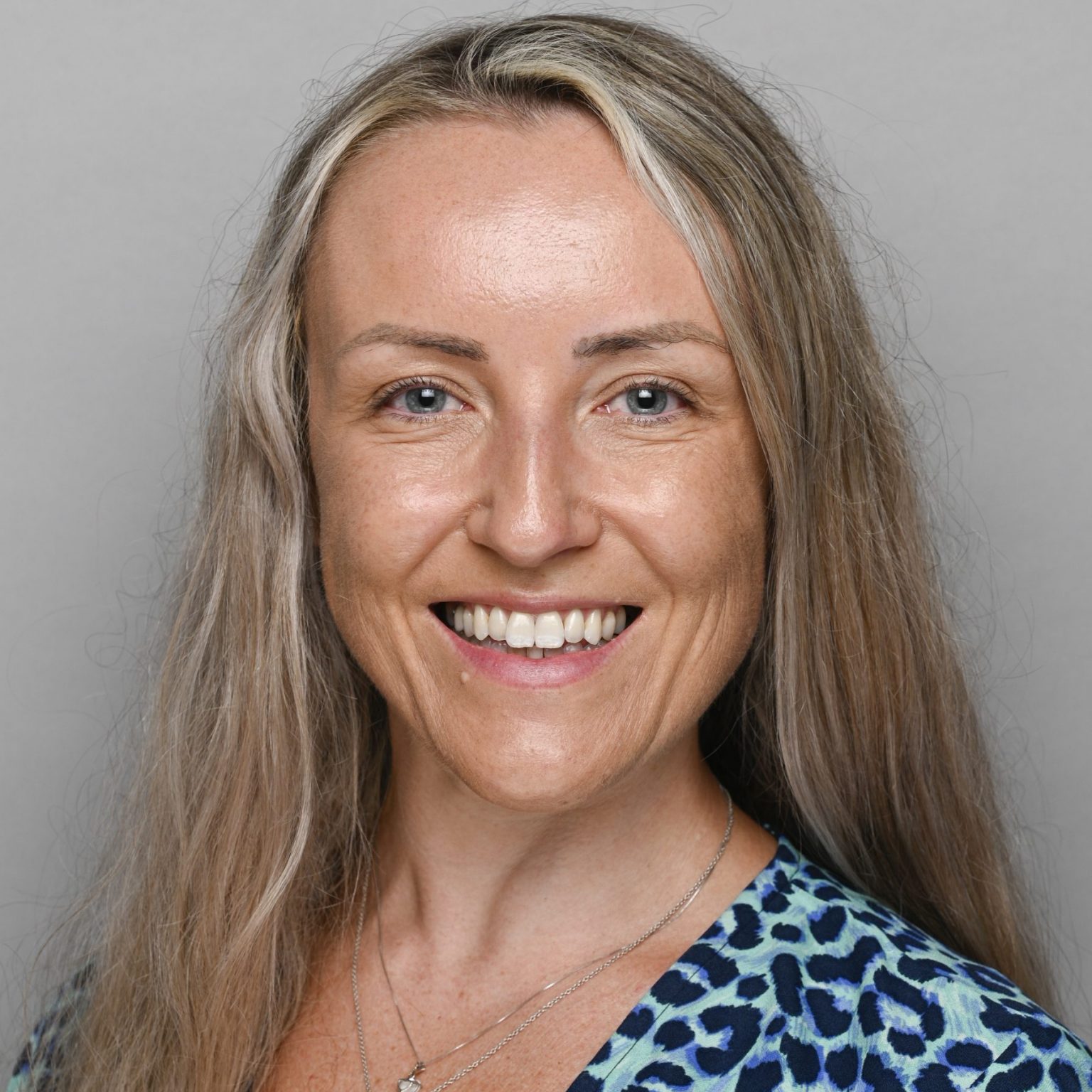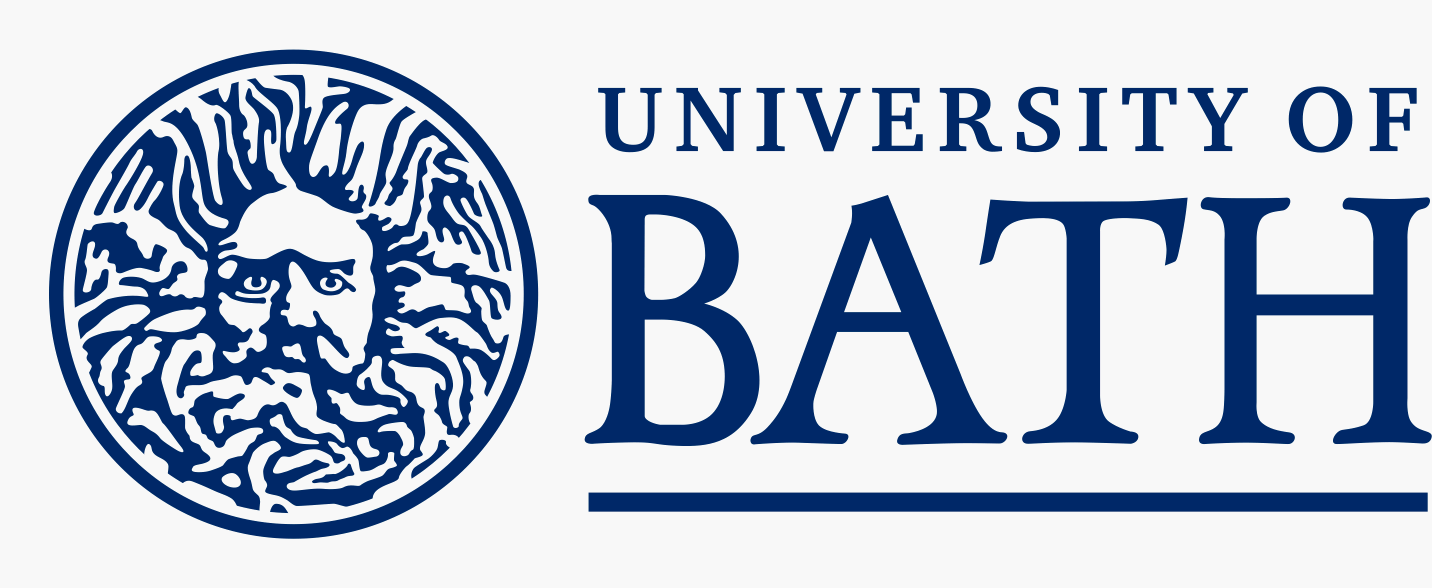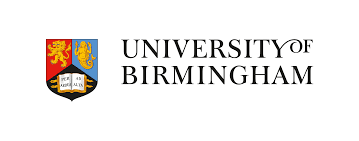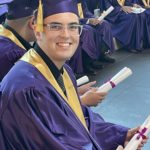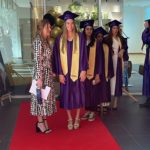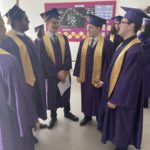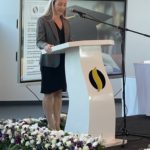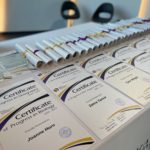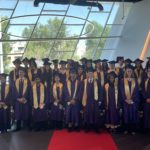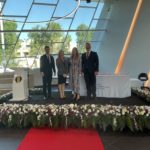Welcome to our Sixth Form
Thank you for your interest in Safa Community School Sixth Form. Whether you are moving up from Key Stage 4 or joining us from elsewhere, we hope you will enjoy looking through the information provided in this prospectus. SCS offers a highly distinctive experience which has been recognised in inspections by BSME and KHDA, as well as by key stakeholders, since our foundation. Our aim is to continue to grow this through the provision of an outstanding learning experience in your final years of secondary education. Years 12 and 13 are a period of growth and transition, and students have to make some potentially life changing decisions about their future during this time. If you join us, you will be part of a dynamic community with a strong focus on both academic and social achievement, but more importantly with a strong and knowledgeable support team in the form of classroom teachers, the pastoral team and senior leadership.
Our Sixth Form builds on the excellent foundations we have developed in Key Stages 3 and 4 by providing varied and inclusive learning opportunities in preparation for the world of Higher Education and work. It is of paramount importance to us that our students are able to fulfill their vast potential and therefore we work collaboratively with students and parents towards this common goal. Our educational provision will give students the opportunity to grow into well rounded, self-possessed and forward looking young people, and provide an excellent springboard to university and beyond by guiding them to be confident and resilient learners and independent thinkers.
More importantly we believe it is important to develop the ‘whole student’, ensuring that you leave us as responsible, committed and ambitious young people, and therefore encourage participation in a wide range of activities, clubs and societies. We expect that all sixth form students will play a full and active role in the community life of the school and we offer a plethora of opportunities for you to do so.
Sixth Form - The Crucial Decision
The choices you make, about what and where to study in the Sixth Form, will have a significant bearing on your future life and career. The qualifications you acquire, the personal qualities and life skills that you develop and the friendships you forge will all be crucialal in determining how you cope with the transition from school to adult life, and your success in an increasingly competitive world.
Why SCS Sixth Form?
It is said that virtually all students find their time in the Sixth Form to be the most exciting and enjoyable of their whole school careers. It is not just an extension of life lower down the school; you will be studying the subjects that you have chosen. At Safa Community School we offer personalised learning pathways, with a range of different subjects and teaching styles to suit your learning needs and future plans.
- Teaching groups will be smaller, allowing you to contribute more personally, and you will develop a more adult and informal relationship with staff.
- You will gain more independent study time, giving you the opportunity to explore your subjects in greater detail beyond the classroom.
- You will make new friends, often based on a shared interest in a particular area of study.
- You will have your own Sixth Form Common Room, and additional privileges not bestowed to younger year groups.
- You will be able to choose from a range of extra- curricular activities and integrate this into your curriculum time through the REACH programme.
- You will be guided through your future plans with a bespoke Sixth Form personal development programme, career guidance and University visits.
- You will be an integral part of the school community, helping with the running of the school and providing role models for the younger students.
Life in the Sixth Form
The secret to success in the Sixth Form is undoubtedly time management! You have to develop the self-discipline to work on your own and to juggle the demands of academic work and all the other opportunities too; this is an essential prerequisite to surviving not just the Sixth Form but university and also the world of work.
Sixth Formers play a key role in many aspects of school life. The Sixth Form student body will provide the Senior School with student leadership roles, e.g. President, Vice President with a Cabinet of Senior Prefects.
The Sixth Form will reflect an outstanding record of academic success, built on the high calibre of you the students and the excellence of our teaching, supported by first class facilities, small teaching groups and a well-developed system of support and guidance. For the vast majority of students all this combines to provide the very best environment in which to fulfil your potential and secure the best possible A-Level grades which are of course the passport to university places and rewarding future careers.
Sixth Form Study
Studying in the Sixth form is very different from the experience students are used to in Years 7-11. Although Sixth Formers take a much smaller range of subjects, the depth of study required is much greater than at GCSE. Students often find the first few months a challenging, yet rewarding time as they adjust to the pace and demands of their Level 3 courses. It is important that students are prepared to work hard and prepare themselves fully for their assessments.
For the first time in their academic careers, Sixth Formers are given non-contact periods timetabled into their working week, which provide them with time to undertake independent study to meet the requirements of their courses. This encourages them to become independent, life-long learners and prepares them for further study at university or the world of work. We have created a range of different study spaces designed to inspire our students to use their non- contact time productively.
Exceptional Teaching & Learning
At Safa Community School we seek to appoint the best teachers available from around the world. All of our teachers are UK trained and have extensive experience of teaching the A level and BTEC curricula. Our teaching staff are highly skilled teaching practitioners with a proven track record in the classroom. We pride ourselves on our caring and friendly staff that know how to engage and motivate students. We offer innovative teaching and learning strategies, which take place in small, intimate classrooms. This means our students receive personalised learning, allowing them to be challenged appropriately and their progress to be monitored accurately, thereby enabling us to maximise their academic potential.
Student Wellbeing
We strive to provide support for our students, creating a safe and supportive learning environment. The pressure of success weighs heavy on some of our young people and it is essential that we ensure that our students are supported with a comprehensive network of care and protection. Sixth Form students have access to a fully qualified Student Advisor and all aspects of a student’s welfare are consistently monitored.
Much emphasis is placed on helping you to cope with the transition from the more structured environment of Key Stage 4 to the greater independence of the Sixth Form. Your Tutor will offer advice and support on academic, personal and career matters and be responsible for your day to day progress and welfare. They will discuss your choices of course and help with higher education applications and discuss any difficulties and review progress generally.
Applications to University
Sixth Form precedes a period of major change: the end of students’ long association with the School and the assumption of formal adult status as they embark on another stage in their lives. Such a significant step requires thorough preparation; what students decide now will impact upon them for time to follow. The range of options is considerable and there is much to think about; planning ahead, choosing a course of action from the alternatives available ad matching ambitions to abilities is all part of the preparation process.
In Year 12, students will start to think about their future careers. Throughout the Sixth Form they will have the opportunity to attend career presentations from guest speakers and Universities, together with coaching sessions to help guide them with their future career intentions. To assist with course and institution choice, university representatives visit the school on a regular basis and we recommend that students attend these meetings so that they can ask questions. All students at SCS have access to a dedicated software program that enables them to search for relevant courses based on their interests and academic attainment Personalised advice on careers and higher education courses is particularly important and each student has an allowance for guidance meetings with a dedicated specialist. University preparation is included in the PSHE programme.
The Head of Sixth Form and your Form Tutors will guide students through the UCAS and Common Application systems into higher education, alongside the development of the personal statement. Furthermore, the vital school reference is based on a detailed knowledge of your achievements and potential and can reflect your development throughout your school career.
Academic Enrichment
Academic progress will also be reviewed regularly with teaching staff. Mock examinations are set prior to external examinations in both years and written reports will be sent to parents. Parents will be invited to meet subject staff and tutors to discuss progress at pertinent points during each academic year.
Islamic Education & Arabic A
Muslim students and students holding Arabic passports will be required to study Islamic Education and Arabic A respectively. Arabic students are required to study 160 minutes per week and Islamic students 80 minutes per week.
Personal Development Programme (PDP)
This is a programme designed to provide time and resources for university applications, careers guidance, and discussion of appropriate issues such as time management and revision schedules. We also discuss social issues, eating disorders, and personal issues such as stress management, financial planning and domestic chores in preparation for moving on to University. The programme is offered one period per week and is led by the Sixth Form Team. The Sixth Form and Careers Team come together to provide a structure that enables students to be prepared for application deadlines to institutions of higher education world-wide.
REACH Programme
Research, Employment, Accredition, Community, Health
Each week students will be expected to engage in a complementary activity as part of the REACH programme, which will be facilitated during their normal timetabled week. This will enable students to demonstrate to universities and employers that they have interests and skills beyond the curriculum and are committed to developing qualities that complement their academic achievements. It is advised that students will choose a variety of options from strands that involve volunteer work, skills acquisition and recreation, as well as gaining accreditation from external bodies.
Wider School Projects & Community
Within the Sixth Form at Safa Community School there are a number of worthy activities which are on offer. It is expected that every student will play a full and active role within the wider school community. Some of the options include:
- School Sports Teams
- Charity Events
- Peer Reading Programme within the Primary School
- Foundation Story Time
- Model United Nations
- International Award
A-Levels
Advanced Level QualificationsInternational A levels have been written to the highest standard, with the global learner in mind, and are recognised by universities across the world. They offer progression from our GCSEs or International GCSEs and can be taken alongside our BTEC National qualifications to give students a comprehensive choice of subjects. International Advanced Level qualifications are not available to UK schools
Exam Results UniversitiesBusiness Studies (BTEC)
The National is a vocational course that is the equivalent of up to 3 A levels. It provides a specialist work related programme of study that covers the key knowledge and practical skills. It offers flexibility and a choice of emphasis through the specialist units.
How are they assessed?
BTEC courses are made up of a variety of units which add up to a total number of credits – this will depend on the type of qualification you chose to fit in with your other option choices. They can be up to the equivalent of 4 A-levels depending on the qualification. All BTEC’s are internally assessed which means they are assignment based with no exam.
Where can they take me?
Over 90 UK universities, 80 American universities as well as universities in Australia, Canada, China, Hong Kong, France, Germany and over 30 countries in total accept entrees from students with one or more BTEC qualification at level 3. There has been a large increase in recent years of students with BTEC qualifications being accepted into top universities who previously didn’t recognise them as equivalent to A- levels. The skills you learn through work placements, the self-discipline developed through completing frequent assignments independently provides a strong basis for university applicants, particularly applicants who know they want to apply for a degree in a practical based subject.
Can I take BTEC’s and A-levels?
Yes! BTEC’s can be chosen alongside A-levels to enable a broad and balanced set of skills. BTEC’s can even be taken at varying qualification sizes so can be tailor made to ensure you achieve the maximum result possible to enable you to apply to your chosen university course or seek employment opportunities.
BTEC Options
- Business Studies
- Hospitality & Catering
- Information Technology
- Media Studies
- Sport
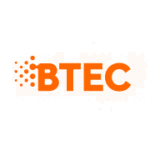
EPQ - Level 3 Qualification
The Extended Project Qualification (EPQ) is a UK Level 3 qualification equivalent to half an A Level, designed to develop students’ skills in independent research, academic writing, and critical thinking. Learners choose a topic of personal interest and complete a 5000-word dissertation or a shorter essay accompanied by a practical project or artefact, along with a presentation and reflective logbook. The EPQ benefits students by preparing them for university-level study through rigorous research and time management, while also offering a valuable addition to their UCAS applications.
The SCS cohort of 12 students achieved a 100% pass rate, with 100% of learners achieving A*—B. Extracts below from the official examiners' report on the SCS learners:
- “The moderator was particularly impressed by the well-designed and comprehensive programme of taught skills at your centre. It helps explain why the candidates were so competent in displaying a wide range of research, planning, development and evaluative skills which will serve them well in the world of Higher Education.”
- “The centre coordinator and supervisors deserve praise for their excellent grasp of the assessment criteria and ability to apply them with precision and objectivity. This was particularly impressive given that a different supervisor had marked every project.”
- “Many thanks for the extremely detailed supporting comments on the candidates’ record of marks and the colour-coded on-script annotations, both of which were very helpful to the moderation process.”
- “The administrative requirements of this specification were meticulously fulfilled. Congratulations to staff and students on your very high standards.”
RSL
The RSL (Rockschool Ltd) Music qualification is a performance-based award that provides students with practical, industry-relevant experience in music. It allows learners to develop their technical skills, creativity, and confidence through solo and ensemble performance, composition, and understanding of the music industry. Suitable for a wide range of abilities, RSL qualifications promote musical versatility across genres while encouraging individual expression. Students are assessed through live or recorded performances and supporting evidence, making the qualification both accessible and relevant. RSL Music supports progression to higher-level music study and careers in the performing arts by fostering discipline, stagecraft, and a deeper appreciation of musical artistry.
In 2025, SCS performers scored an 80% Distinction * for their exceptional performances.
Graduation 2023
The Application Process
ITake the opportunity to discuss your options with subject specialists, your Form Tutor and your parents. Attend the Sixth Form option evening.
Internal Candidates
Complete the Sixth Form application (Appendix 10, indicating your preferred options and submit it to your Form Tutor (for SCS pupils only). Please ensure that you meet the entry criteria.
External Candidates
Complete the Sixth Form application form and submit it to admissions. Please ensure that you meet the entry criteria for chosen subjects. Once all documentation is received a confidential reference will be requested from your previous school.
Qualifying candidates will be called for a short interview with the Head of Sixth Form or another senior member of the Safa Community School staff.
Following the interview, Sixth Form conditional offers will be issued as places on specific courses become available. Places are held provisionally pending results only when all acceptance criteria are met.
Following the release of GCSE results, students will have to confirm their A level choices, dependent upon results meeting entry criteria.
External CandidatesThe deadline for students to officially submit their final GCSE Results grades to the SCS Registrar and confirm their subject options is 24th August.
Essential Information
Year 12 Admissions
- All admissions are subject to the overriding provision that we can construct a reasonable timetable. Provisional admission is no guarantee that a reasonable timetable is possible.
- We reserve the right to refuse entrance to Year 12 or to a particular subject, even if a student is technically qualified, if we feel he/she will not cope academically, or will get no positive benefit from the course.
- We reserve the right to refuse entrance to Year 12, even if a student is academically qualified, if we feel he/she will be disruptive.
- In some subjects where there are more students wishing to take the subjects than places available, we may demand higher qualifications (e.g. Grade 5 at GCSE Level, a range of reasonable GCSE Level results). We cannot legislate for this until the demand for places is known.
Examination Fees
Parents should note that fees for external A Level examinations are the responsibility of the parent. Parents will receive an invoice for each examination cycle the student is entered for, including re-sits.
BTEC Fees
Exam fees for the BTEC courses are paid in full at the beginning of Year 12 for the full duration of the 2 year course. The fee charged will cover the entry fees for the course as well moderator visits from the UK for each subject. Any re-sit of units within the course does not incur additional charges over and above the original fee paid.
Other Costs
Students that require additional access arrangements during examinations, for example the use of a reader or a scribe, may incur additional costs for invigilation.

